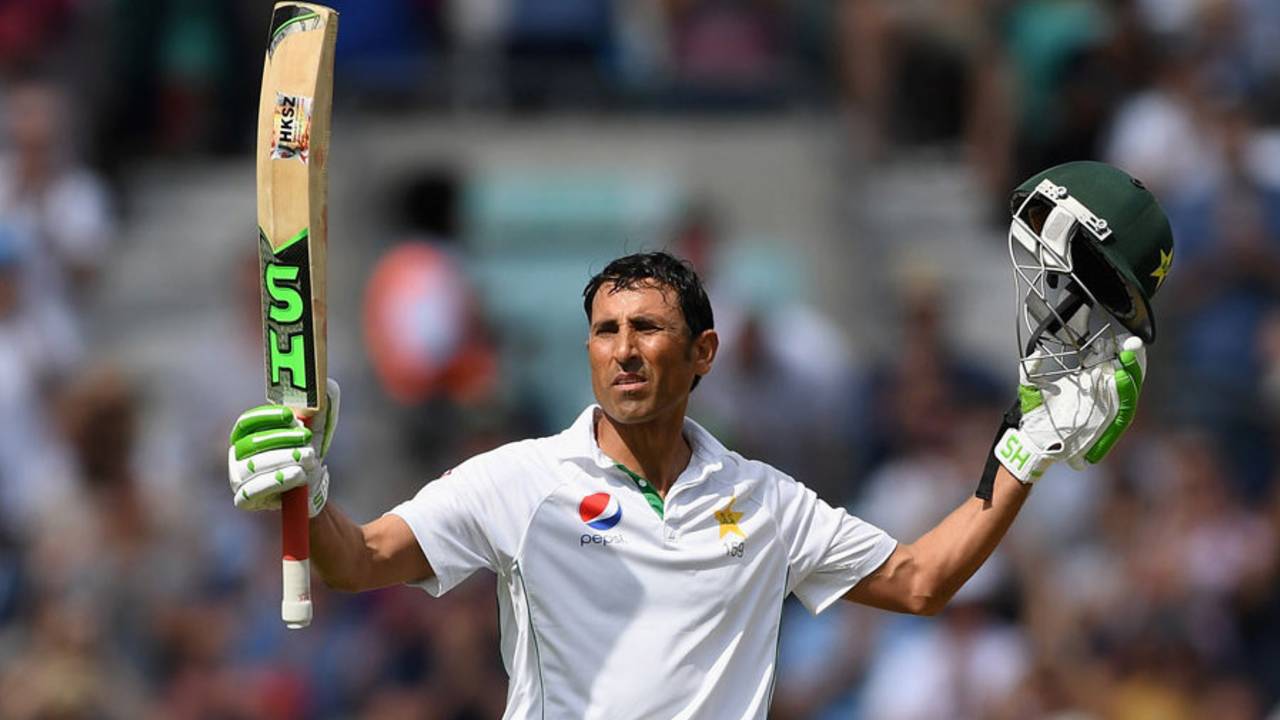Is Younis Pakistan's greatest batsman?
Special as the likes of Hanif, Inzamam, Miandad and Yousuf were, this cussed oldster just might have pipped them all. He certainly has the numbers
Younis has scored more Test runs than any Pakistani batsman and at a better average • AFP
Younis puts in long hours, commends others for their input and accepts the cards that are dealt his way. A dazzling smile and a frenetic technique do not bring a true impression of the inner man

Mark Nicholas, the former Hampshire captain, presents the cricket on Channel Nine in Australia and Channel 5 in the UK
